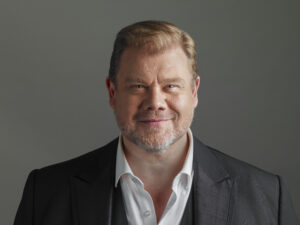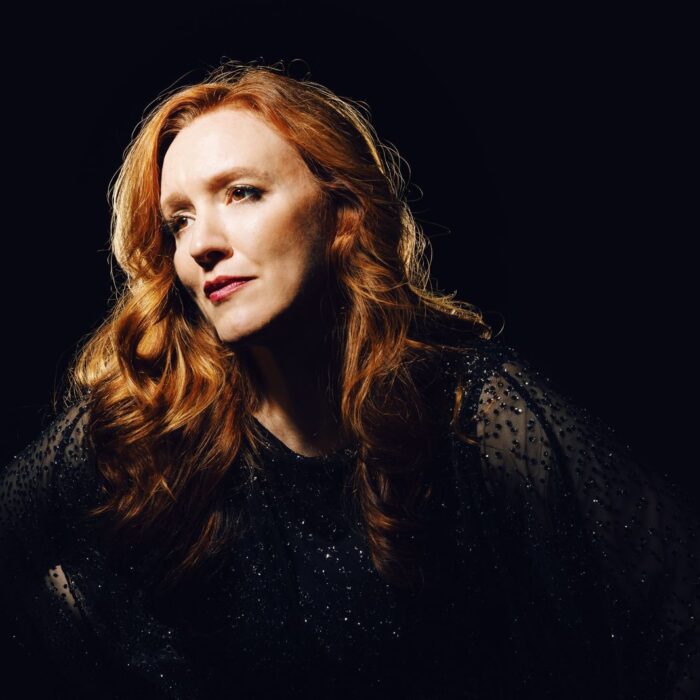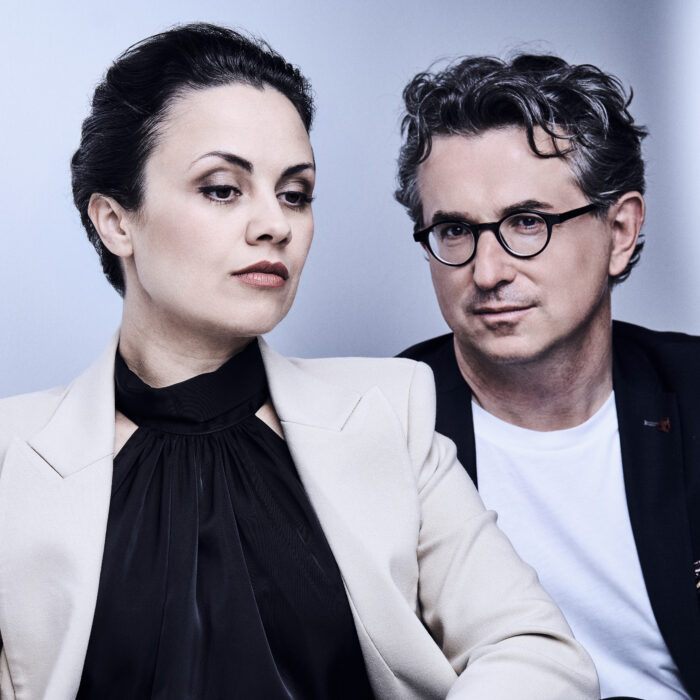
Q & A: Stuart Skelton on ‘Tristan un Isolde,’ Longevity as a Heldentenor & his Philadelphia Orchestra Debut
By Francisco SalazarOn June 1 and 8, the Philadelphia Orchestra will present Wagner’s “Tristan und Isolde” with Yannick Nezet-Seguin conducting the opera for the first time. The conductor has lined up an all-star cast of Wagner titans who have performed the work on numerous occasions.
Among them is Stuart Skelton, who is recognized as one of the great Heldentenors of his generation. He has appeared on the great stages of the opera world including the Metropolitan Opera, Seattle Opera, San Francisco Opera, Royal Opera Covent Garden, English National Opera, Wiener Staatsoper Paris Opera, Bavarian State Opera, Hamburg State Opera, Berlin State Opera, Deutsche Oper Berlin, Teatro alla Scala Milan, and Semperoper Dresden, among others.
Tristan has become one of his signature roles, which critics have lauded, stating, “Skelton was superb on both counts, however, producing lovely, dark-hued tone all evening, and grappling visibly with his character’s complex emotions. His desperate monologue in Act III was so riveting, it was easy to forgive a little vocal fatigue.”
Skelton had a chance to speak with OperaWire about the role of Tristan, making his Philadelphia Orchestra debut, and longevity as a Wagnerian singer.
OperaWire: What does it mean to debut with the Philadelphia Orchestra?
Stuart Skelton: I’m super excited about it, and I have been thinking about the Philadelphia Orchestra and its history. In the pantheon of American orchestras, it holds a very special place.
Being a bit of a conductor junkie myself, most of the stuff that my memories of listening to recordings in Philadelphia are almost always Stokowski and this incredible sound that he was able to make of the Philadelphia Orchestra. So I mean, for me, that’s incredibly exciting.
This sort of repertoire with an orchestra that’s so steeped in those incredible luminous sounds sets them apart. And Philadelphia has been one of those for such a long time.
OW: “Tristan und Isolde” is a work you have performed many times. What does it feel like to debut here with this role?
SS: It’s special for many reasons; one because it’s Tristan, two because it’s Philly, and three because it’s Yannick, who is an incredibly energizing force for orchestral music, and I think that’s a very cool combination.
OW: What is it like to perform something like Tristan in concert as opposed to in a production?
SS: I think in concert, you do get the luxury of just being able to focus a little more on how best to navigate the vocal demands. I mean we all accept that there are those demands. And I think in concert you just get to spend a little bit more time focusing on music. The con, if there’s a con, you don’t necessarily get the full dramatic, immersive quality of it, particularly in Act three, without a production around you.
But that just means that you have to manifest for your audience the dramatic intensity vocally.
OW: You have done Tristan with Nina Stemme on many occasions. How has that collaboration developed over the years?
SS: I’ve been incredibly lucky that well over half of my Tristans have been with Nina. I feel incredibly comfortable singing this role with Nina because we’ve done it so often in so many places in so many varied productions and with different colleagues and conductors.
I feel incredibly comfortable, and very secure that the vocal relationship between the two of us is one that just brings both musically and dramatically across exactly what I think is required and what is necessary, and what the audience expects. So I’ve been incredibly fortunate to have had such an amazing collaboration with Nina over more than 10 years.
OW: How has this role developed for you over the years, and how do you balance the challenges of it?
SS: It doesn’t intimidate anymore. I think if you’re not frightened by it, you’ve got it wrong. I think you need to be a little scared. Tristan doesn’t intimidate me anymore, and it used to when I first started singing it. And I think if it doesn’t, you’re a bit of an idiot.
When I first started singing it, I was sensibly and healthy in that environment. And I’m not now.
In terms of pacing, I’m not sure I do. I don’t know that there is a way to. But I do know that there are some parts, probably two or three highly significant sections in Act two when you know that the orchestra is just doing something that means you don’t have to be at the top of your power output where you can sort of sit back and lean against that sound a little bit. There are probably a couple of places in Act three, a bar here or there, where you can be running that little subroutine of making sure you are still vocally healthy and good shape.
But I don’t know that I’m ever aware of pacing it. I mean, to be fair, I do have a reputation for not pacing anything. I just sing everything, like I’m going to retire after every performance. And people seem to appreciate it. So I don’t see any reason. If it’s not broke, don’t fix it.
OW: This will be your first time collaborating with Yannick Nézet-Séguin. Tell me about working with him.
SS: I’ve sung quite a bit of Wagner in New York, but never with Yannick, so this is a first for me. But the things that I have seen Yannick conduct in New York, there’s a level of precision and detail, which I think is incredibly important, particularly in Wagner. In Wagner, you have this big canvas, but you have a myriad of countless little, incredibly important, small dots of detail that, when you step back, become this glorious canvas that just carries you away.
And I think Yannick has an incredible ability to span both of those things. He has this huge, broad emotional sweep. You need to have an understanding of the emotional architecture and that broad sweep of where the opera starts and where it finishes. But you also need to have every tiny a little detail, that Wagner wrote. Yannick has that incredible passion and attention to the smallest detail, which then gives that broad emotional arc of the opera.
It’s a timeless quality.
OW: As a Heldentenor who has been performing for years, what is the key to longevity?
SS: It’s a question I get asked by younger singers now that I do a lot of master classes. And that’s one question where you have these younger singers who might be transitioning from being some version of baritone into a dramatic tenor. I don’t think that’s necessarily the only way. I was never a baritone.
I think the secret for me, and it’s the secret I try to pass on to those singers who ask for my advice, is that the way to have longevity in the Wagnerian repertoire relies on you not caring whether you are the loudest voice. People do get hung up about it and think that in Wagner, you just have to be loud. I would aim to sing more beautifully than everyone else. I think Wagner had a reputation for a long time of being stuff that you’re allowed to yell and scream, and bark as long as it was loud enough. And I think Wagner deserves much better than that. I really do. And I’ve never sought to sing louder than anyone else. And if I did, I’d lose. I’ve been in the room with Eva Marton, and you’re never going to win that fight.
And then there is not one instrument in the orchestra that can’t play louder than a human voice. And there’s 97. That’s not a fight you want to pick.
Sing what Wagner gives you. Wagner has so many parts across the opera that are piano. And you’re rarely going for broke. Wagner draws you into the music. He doesn’t pin you to the back of the seat all the time. Do not ever try to be the loudest person, because you won’t be, and it doesn’t serve the music, and it doesn’t serve you.
OW: Wagner was always obsessed with Bel Canto and Bellini specifically. Do you think Wagner’s music could be performed in a Bel Canto style?
SS: Absolutely! You have a look at “Rienzi,” which doesn’t get performed often because it’s hard. If you take the German words out of it and were to play some of the tunes and the arias, I would swear to you it’s Bellini. And then you give the German words, then you realize it’s Wagner. Rienzi’s first aria is very much like Bel Canto.
So he was obsessed with all that and loved Bellini. I don’t think Tristan was ever meant to be yelled. I understand why he makes Act three as physically demanding as it is, because Tristan needs to be at the end of every possible rope. He needs to be at the end of his rope in his soul, physically and emotionally. So that’s why Act three, I think, does sort of guide you in those extremes.
But never forget, the more degraded his body becomes, the more physically incapable his body becomes before he dies, his soul’s going heavenbound. So you’ve got to be able to play both of those at the same time. And you can’t do that just by screaming.
At least that’s not my way of doing it. I think the best way to do that is to keep Tristan’s singing as angelic as possible. And that doesn’t mean that it’s quiet.


